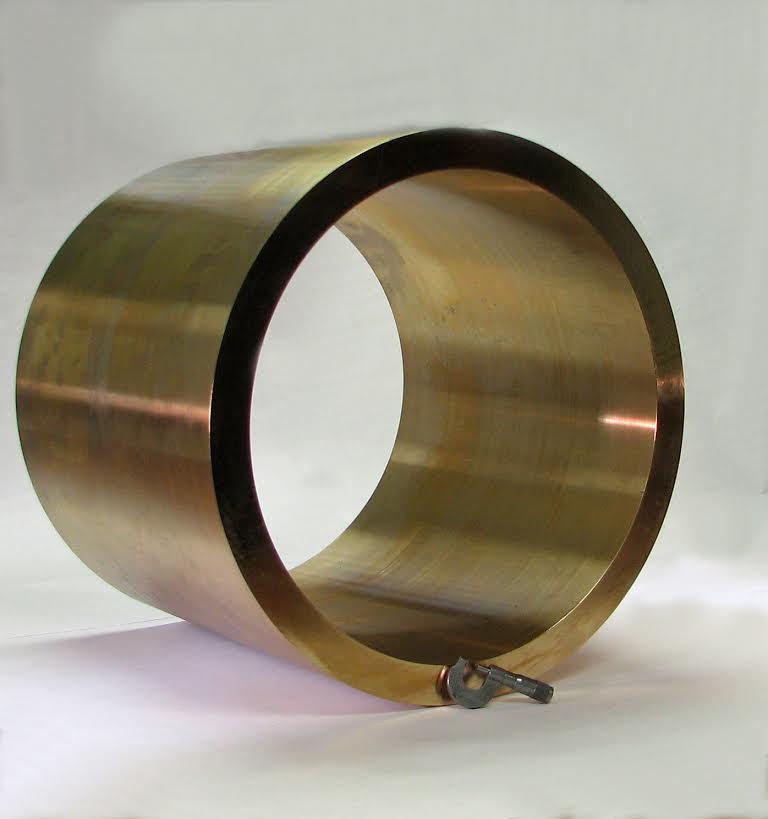Understanding Centrifugal Casting and Its Advantages
Leave a CommentWhat is Centrifugal Casting?
Centrifugal casting is in effect “liquid forging.” Molten bronze is forced against the mold wall under moderately high pressure. Centrifugal force causes “an object moving in a curve to be pushed away from the curve’s center.” This force, combined with the rapid cooling effect of the cold mold induces directional solidification across the casting wall under a forced feeding condition.
What Are the Benefits of Centrifugal Casting?

The combination of centrifugal force and rapid cooling improves the density of the cast metal and increases the actual mechanical properties, while providing a uniform metallurgical structure. Therefore, products will have improved strength, durability, and performance.
What Materials Are Used?
Bunting Bearings is a U.S. supplier of centrifugal castings and manufactures a wide range of sizes in Leaded Tin Bronzes, Aluminum Bronzes, Manganese Bronzes and No Lead Bronzes. Centrifugal castings are generally sold in the semi-finished condition to ensure the customer receives a high quality casting with minimal machining required to meet the finished dimensions.
The Bunting Bearings Difference
Bunting Bearings is a premier bearing and bar manufacturer that has perfected the production process. Our lead time is virtually unmatched, and is typically 1 to 2 weeks, however it can even be as little as 48 hours.
Centrifugal casting is one of the ways that Bunting supplements our continuous cast offerings to our customers. Continuous casting still represents a tremendous value product with high quality combined with minimal clean up stock allowance. However when smaller quantities, larger sizes and non-standard alloys are what is required the cost effective solution is a Bunting centrifugal casting.
